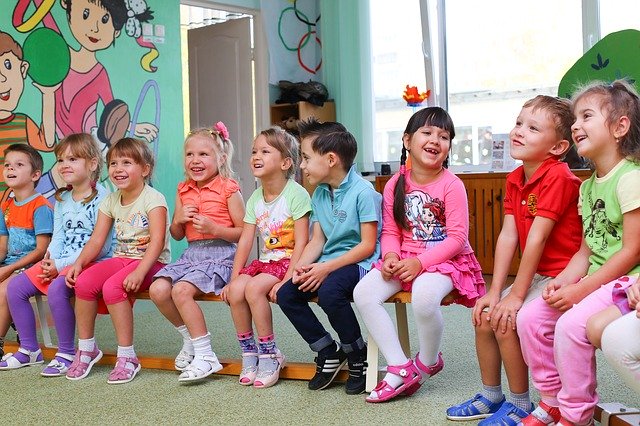Between 1998 and 2011, 19 children have died from hyperthermia in hot vehicles across North…
For the past several years, there's been a growing trend to "redshirt kindergarten," or hold kindergarten-age children back a year. Parents are concerned that because kindergarten curriculums are becoming more demanding, testing is introduced earlier, and expectations are higher, their children may not be ready for the challenges.
With the COVID-19 pandemic, more parents than ever held their children back, worried about Zoom-based kindergarten doing more harm than good or sending their child to a classroom setting exposing them to illness. This year, as schools attempt to return to normal, there is still the continued concern about whether you should hold your child back one more year, redshirting, or send them on time.
In this article, we won't be addressing the health concerns of COVID-19 as that landscape is continually changing and should be discussed with your pediatrician. Instead, our preschool in Raleigh is sharing information about starting on time or delaying kindergarten and how it may affect long-term development.
When Can Children Start Kindergarten
In Wake Country, children must be five years old on or before August 31 in order to start kindergarten. This means that some children will still be four (if only for a few weeks) while others will be turning six a few weeks after school starts.
Also, Wake County allows parents to enroll their children in kindergarten up to age seven, so there may be nearly two years age difference between the youngest and oldest child. As they get older, this age difference isn't a big deal, but many parents are concerned that their young kindergartner may be at a developmental disadvantage. Many parents experience the following concerns:
- Putting too much pressure on their child
- Whether or not they can sit still through the day
- If they are mature enough for kindergarten
- If their child will be behind their classmates academically, socially, or in other necessary skills
- Wanting to provide their child more time to play and learn at their own pace
Rarely, parents will attempt to secure a "competitive advantage" by redshirting kindergarten. By waiting an extra year, their child will be bigger, faster, and more athletically inclined or ahead academically and will stand out among the other children. Multiple studies have been published showing that after the first few years of elementary school, any "advantage" from starting later does diminish over time, so while some parents may think waiting a year will lead to higher test scores and college acceptance, there's no proof of this.
Benefits and Challenges with Redshirting Kindergarten
Let's consider the pros and cons overall to delaying kindergarten compared to sending them on time.
Benefits of Redshirting
- The transition and saying goodbye is often easier with older children as they will be more independent
- Less likely to mis-diagnosed with a learning delay or ADHD. The New England Journal of Medicine found that children who started kindergarten at four were more likely to be diagnosed with ADHD than those starting at six because they are simply more immature compared to the older classmates
- Developed social, motor, and verbal skills. If you're concerned your child may be a bit behind, giving them an extra year allows them to catch up to their peers
Drawbacks to Redshirting
- If parents over prepare children for kindergarten, the child may get bored and act out
- An added year of paying for childcare
- They may struggle to fit into a kindergarten class if they are older
- Studies show it generally doesn't matter in the long run and children who start at four and at six all tend to even out after a few years
Should You Delay Sending Your Child to Kindergarten?
There isn't one for-sure answer as to whether it's right to delay kindergarten. Every child is different, and parents should make the decision they feel will be best for their child. The foundation for kindergarten readiness depends on the following answers;
Can your child:
- Communicate their needs clearly?
- Express feelings with words?
- Sit still for 10 minute stretches, such as to listen to a story or participate in an activity?
- Follow two-step instructions?
- Use the restroom and wash up independently?
- Say full name and age?
- Engage with peers appropriately?
Those are just some guidelines to consider. If you truly aren't sure what decision is right, speak to your child's pediatrician or the school to determine readiness.
If your child missed out on preschool programs, had limited playdates and other social experiences over the past year, they may benefit from catching up on necessary skills for another year before worrying about adding academics into the mix.
What Delaying Kindergarten Looks Like
If you do choose to wait to send your child to kindergarten because you feel they aren't ready, it's important to determine what the next year will look like. If you're concerned about communication delays, talk to your child's pediatrician about a speech therapy referral or other types of support.
If your concerns are regarding social development, maturity, and focus, your child would most likely benefit from an extra year of a preschool program (or to begin one), especially if they are on the younger side. This way, they'll continue to learn necessary school skills in a supportive, nurturing environment. By the end of the year, they should be ready to move on to school ready to take on kindergarten!
Contact Our Raleigh Preschool for a Tour Today
At Primary Beginnings, we offer a 5-star preschool that blends cognitive skills with social skills in a fun, caring environment so they can thrive in a kindergarten environment. We have two preschools in Raleigh to choose from to better suit your family's needs. Contact our Spring Forest Rd school at 919-790-6888 or North Hills Drive at 919-785-0303 today or fill out the form below to get started!

